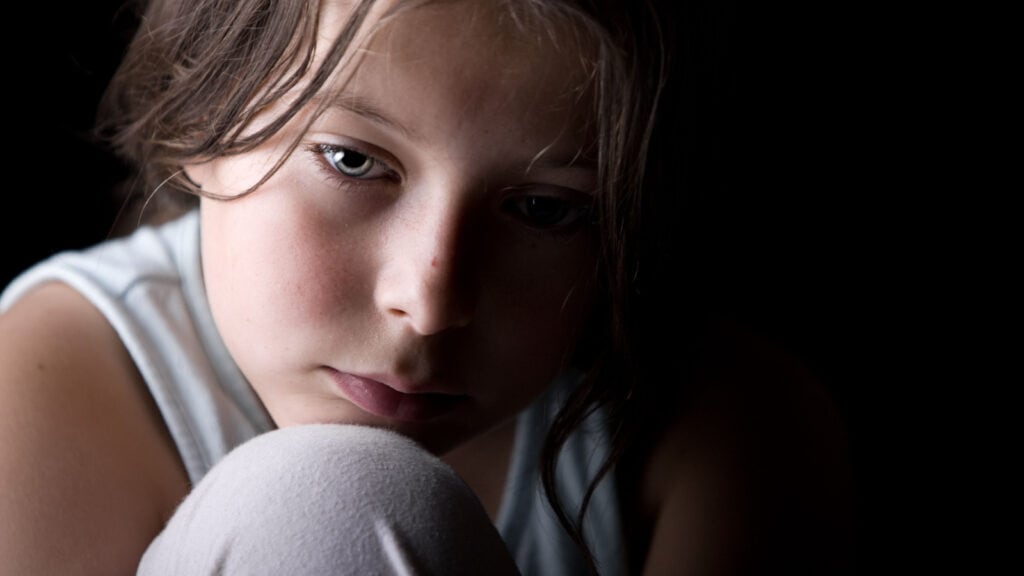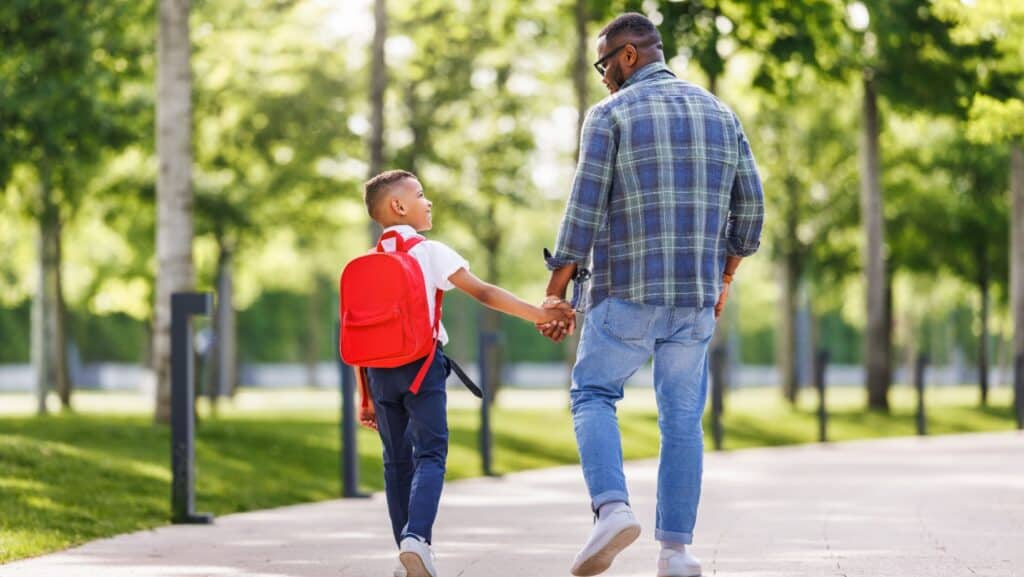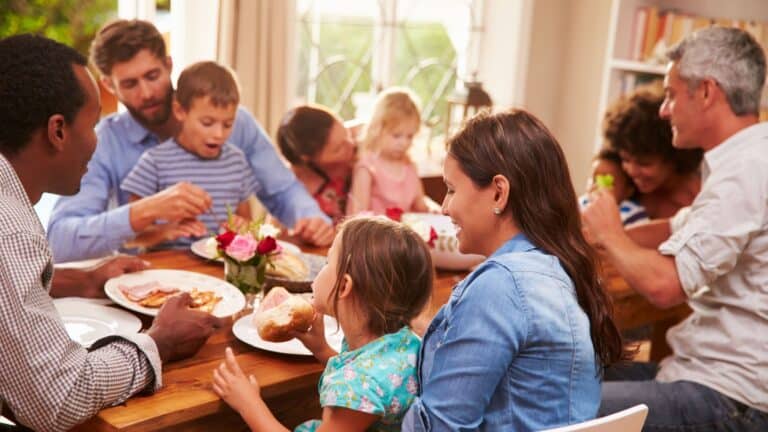How To Talk With Children Ages 8-12 About School Violence And Shootings
Discussing school shootings with children is a challenging but necessary task for parents and caregivers. When children ask questions about these tragic events, it’s natural to feel unprepared or uncertain about how to respond. However, these conversations are crucial for helping children process their emotions, understand the situation, and feel safe in their environment. While it may be tempting to avoid the topic altogether, addressing children’s concerns directly can provide them with the support and reassurance they need during uncertain times.
Why It Is Not Too Young To Have These Conversations

It’s never too early to begin these conversations because children, even at a young age, are exposed to information through media, peers, or overheard conversations. By discussing school shootings in an age-appropriate way, parents and caregivers can provide a safe space for children to express their fears, ask questions, and gain a better understanding of the world around them. Starting these discussions early allows children to feel more secure and better equipped to handle their emotions, helping to build trust and resilience in challenging times.
Start the Conversation

Don’t avoid discussing this difficult topic with your children. They have likely already heard about school shootings from friends, social media, or news reports. Initiate an open dialogue by asking what they know and how they feel about it.
Provide Reassurance

Emphasize that school shootings, while tragic, are still very rare events. Reassure children that many adults – teachers, administrators, and law enforcement – are working hard to keep them safe at school. Review the safety measures and drills in place at their school.
Listen and Validate Feelings

Allow children to express their fears and concerns without judgment. Acknowledge that it’s normal and okay to feel scared, angry, or anxious about this issue. Provide comfort and support.
Be Honest but Age-Appropriate

Give factual information, but avoid graphic details that may be too disturbing. For 8-12 year olds, you can provide simple, straightforward explanations about what happened without going into specifics about injuries or deaths.
Limit Media Exposure

Excessive news coverage of school shootings can increase anxiety in children. Monitor and restrict their access to potentially upsetting media reports or images.
Maintain Routines

Sticking to normal daily routines can help reestablish a sense of safety and normalcy for children after learning about a frightening event.
Empower Them

Discuss what to do if they ever feel unsafe at school. Encourage them to report any concerns to trusted adults. This can help them feel more in control.
Watch for Signs of Distress

Be alert for changes in behavior, sleep patterns, or physical complaints that may indicate your child is struggling to cope. Seek professional help if needed.
Remember to tailor the conversation to your individual child’s maturity level and needs. Be patient, as they may need time to process the information and may have questions later on. Maintain an ongoing, open dialogue about school safety.
How You Can Help

Here are some suggestions for encouraging your child to express their feelings about school shootings:
Create a Safe Space for Discussion

Start by creating an open, non-judgmental environment where your child feels comfortable sharing their thoughts and emotions. Let them know it’s okay to talk about scary or sad topics, and that there are no wrong feelings.
Ask Open-Ended Questions

Begin by asking what they already know about school shootings and how they feel about it. Use open-ended questions to encourage them to elaborate on their thoughts and emotions.
Listen Actively

Give your child your full attention and listen without interrupting. Validate their feelings by acknowledging that it’s normal to feel scared, angry, or anxious about this issue.
Use Art as an Outlet

Art activities can be a powerful tool for emotional expression, especially for children who struggle to verbalize their feelings. Consider the following:
- Provide art supplies like paints, clay, or markers and encourage free expression
- Ask them to draw or paint how they feel inside
- Create a feelings journal where they can draw or write about their emotions
Engage in Play

For younger children especially, play can be an effective way to process emotions. Consider:
- Using dolls or action figures to act out scenarios
- Engaging in pretend play where they can take on different roles
- Using building blocks or Lego to construct “safe spaces”
Maintain Open Communication

Let your child know they can come to you with questions or concerns at any time. Be patient if they don’t want to talk right away – they may need time to process their feelings.
Remember to tailor your approach based on your child’s age and maturity level. Always be honest in your responses, while keeping information age-appropriate. If you notice persistent signs of anxiety or distress, consider seeking help from a mental health professional.
When Children Ask Hard Questions

Here are some suggestions for handling questions about school shootings that you may not know how to answer:
1. Be honest about what you don’t know. It’s okay to say, “I’m not sure” or “I don’t have all the answers”. Children appreciate honesty from adults.
2. Offer reassurance about safety. Even if you can’t answer specific questions, emphasize that schools and adults are working hard to keep children safe.
3. Listen carefully to understand the underlying concerns behind their questions. Often children are most worried about their immediate safety and that of their loved ones.
4. Ask what they think or have heard. This can give you insight into their thoughts and any misinformation they may have picked up.
5. Provide factual information to address their specific worries, without speculating or repeating rumors. Stick to verified facts.
Continue To be There

6. Offer to look up answers together if appropriate. This can be a way to find accurate information while teaching critical thinking skills.
7. Redirect the conversation to focus on how to stay safe and what protective measures are in place at their school.
8. Validate their feelings and concerns. Let them know it’s normal to feel scared or worried.
9. Remind them they can always come to you with questions or concerns, even if you don’t have all the answers.
10. Consider seeking help from a school counselor or mental health professional if your child has persistent fears or anxieties you feel unequipped to address.
The most important thing is to keep communication open, listen attentively, provide reassurance, and give age-appropriate, factual responses to the best of your ability. It’s okay not to have all the answers.
The Takeaway

Navigating conversations about school shootings with children requires patience, honesty, and sensitivity. Remember that it’s okay not to have all the answers. The most important aspects are maintaining open communication, providing a safe space for children to express their feelings, and offering reassurance about their safety. By addressing their concerns thoughtfully and age-appropriately, you can help children develop resilience and coping skills in the face of difficult realities. If you find yourself struggling to manage these conversations or notice persistent signs of anxiety in your child, don’t hesitate to seek additional support from school counselors or mental health professionals. Ultimately, your willingness to engage in these challenging discussions demonstrates your commitment to your child’s emotional well-being and can strengthen your relationship during trying times.
How Safe Is Your Child’s School? 6 Critical Questions Parents Need to Ask

In an era where school safety concerns are paramount, parents and caregivers play a crucial role in ensuring their children’s well-being. While schools bear the primary responsibility for student safety, informed and engaged parents can significantly contribute to creating a secure learning environment.
READ: How Safe Is Your Child’s School? 6 Critical Questions Parents Need to Ask
Are Your Teens Prepared For The Real World? How Many Of These Can Your Teen Check Off?

As teenagers transition into adulthood, it’s crucial for them to develop the skills and knowledge needed to navigate the complexities of the real world. Some adults weigh in on what they have learned: from managing finances to understanding basic life skills, being prepared can make all the difference in their future success and independence. This article explores some essential areas that teens should be familiar with before stepping into adulthood. How many of these can your teen check off? Let’s find out if they’re ready for the challenges ahead!
READ: Are Your Teens Prepared For The Real World? How Many Of These Can Your Teen Check Off?
Join Us

Join us on this empowering journey as we explore, celebrate, and elevate “her story.” The Queen Zone is not just a platform; it’s a community where women from all walks of life can come together, share their experiences, and inspire one another. Welcome to a space where the female experience takes center stage. Sign up for our newsletter so you don’t miss a thing, Queen!







